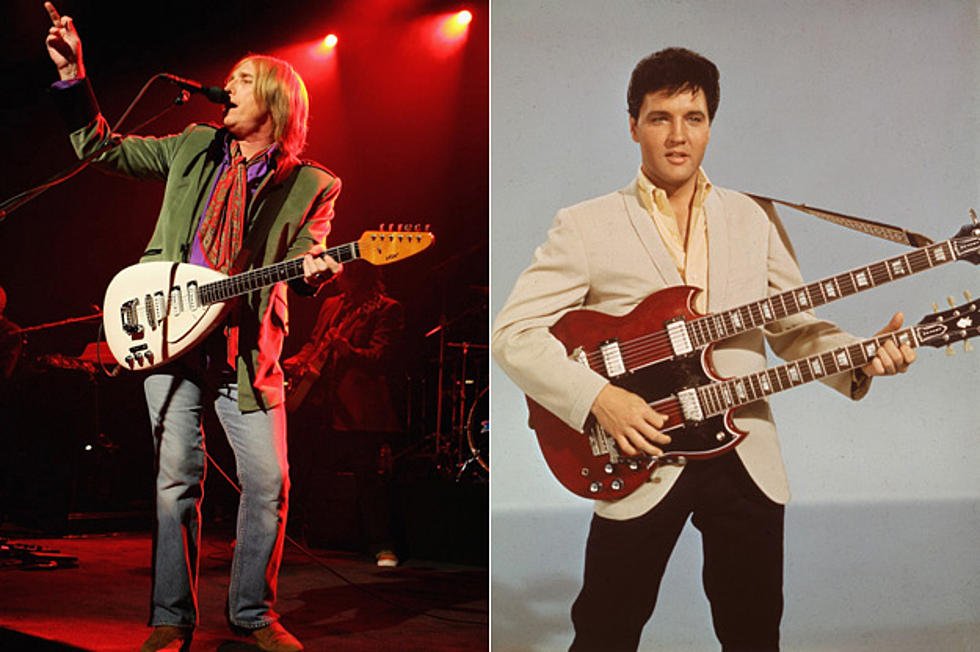In the annals of musical history, the echoes of bold and unreserved declarations have resonated, immortalizing artists for their outspokenness. Whether it’s Morrissey’s unabashed demeanor or the Gallagher brothers’ unfiltered comments, musicians have often graced the public sphere with memorable one-liners. However, the unexpected entrant into this league of candidness was none other than Tom Petty.
Petty stirred the waters with a fascinating perspective on the legendary Elvis Presley, the undisputed king of covers. Elvis, renowned for reworking classic blues and rock songs, propelled Black artists into the mainstream while inadvertently overshadowing their original renditions. Hits like ‘Hound Dog,’ ‘Suspicious Minds,’ ‘Blue Suede Shoes,’ and ‘Always On My Mind’ were all Presley’s adaptations of tracks initially recorded by other artists.
Elvis, a master of reinterpretation, elevated these covers to unparalleled heights in terms of sales and notoriety, infusing them with his unmistakable flair. Petty, a self-proclaimed fan of Elvis, threw an unexpected curveball by asserting that his cover outshone the original. “One of my favorite records… when we covered his song ‘Wooden Heart,'” Petty claimed. “I love our record of that. I think we did it better than Elvis. That’s saying a lot, but I think we did. And that was a one-take.”
Proclaiming superiority over The King himself is undeniably audacious. Presley, an icon perched atop the musical hierarchy, wasn’t just an artist; he was a cultural phenomenon. With an enduring fan base and an unassailable reputation, challenging Presley’s legacy is a lofty endeavor.
Yet, Petty’s perspective was that of a devoted fan. Having immersed himself in Presley’s music from a young age, Petty’s impromptu cover emerged during a studio session. “I had no idea I was going to do it,” he reminisced. “I just said, ‘Let’s play ‘Wooden Heart,’ and we played it. And that was the only time we did it. But it was right from the heart.”
The authenticity and nostalgia embedded in the one-take cover held immense personal significance for Petty. Even though it deviated from Presley’s style, Petty acknowledged the lingering influence. The performance found a place on their Playback compilation of B-sides and rarities, a testament to its emotional resonance.
While the cover exudes the energy of a band playing a cherished track, Petty’s vocals fall short of Presley’s unparalleled crooning. Stripped of Presley’s theatrical instrumentation, the attempt to modernize the lyrics results in clichés. Perhaps Tom Petty and the Heartbreakers could have delivered a stellar classic rock rendition of one of Presley’s more robust tracks. Nevertheless, this overlooked cover remains best suited to the realm of the King, preserving its authenticity within Presley’s enduring legacy.
